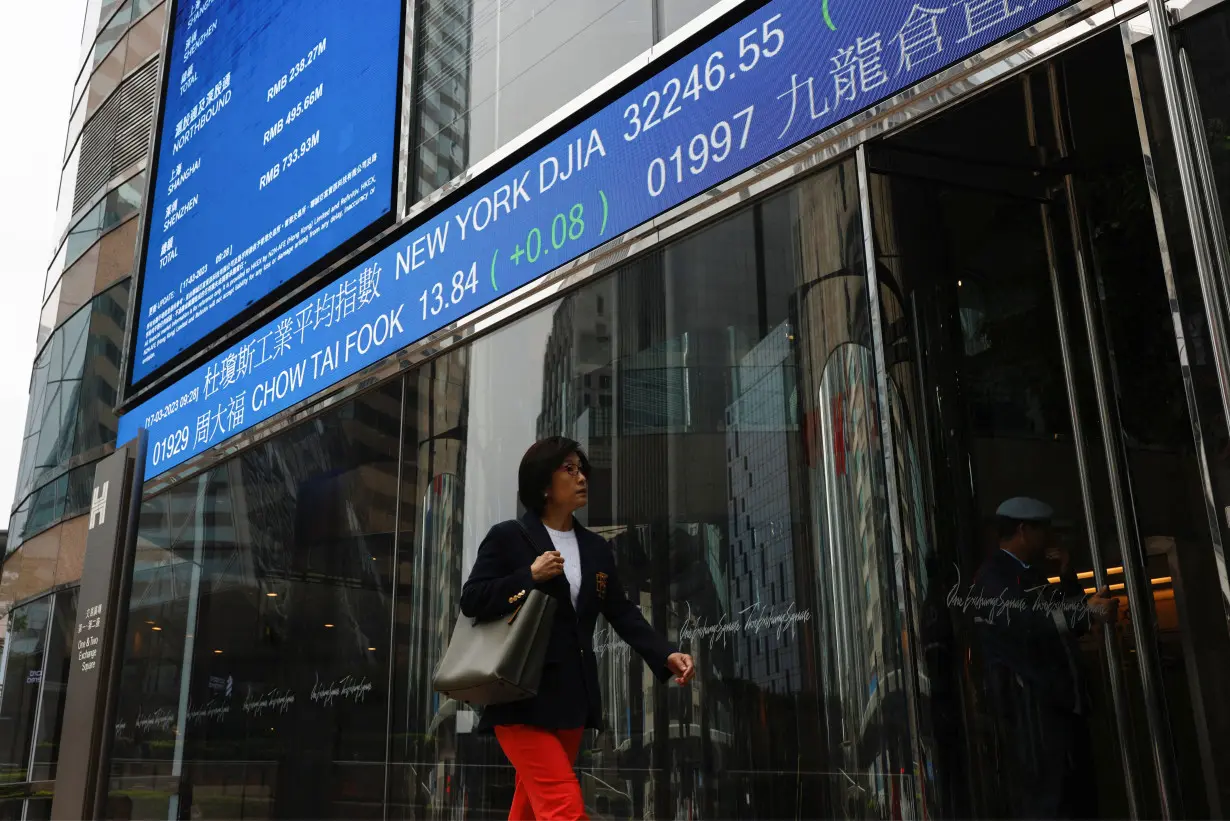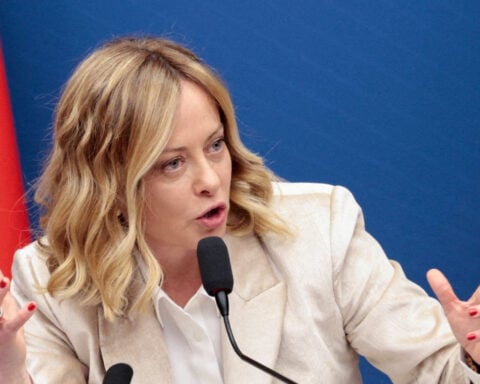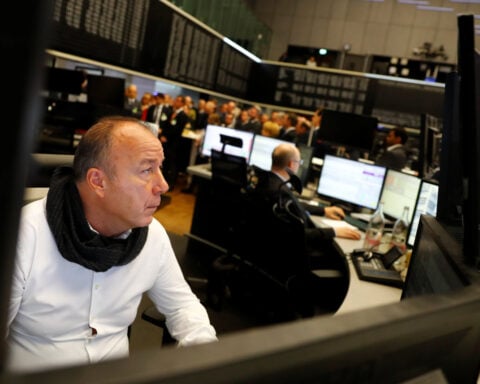By Caroline Valetkevitch
NEW YORK (Reuters) - U.S. Treasury yields rose and the dollar strengthened while global stock markets fell on Thursday after data showed U.S. consumer prices increased more than expected in September.
That helped to underpin some views in the market that U.S. interest rates may need to remain high for longer.
The week's sharp escalation of Middle East tensions ensured the mood remained cautious across markets.
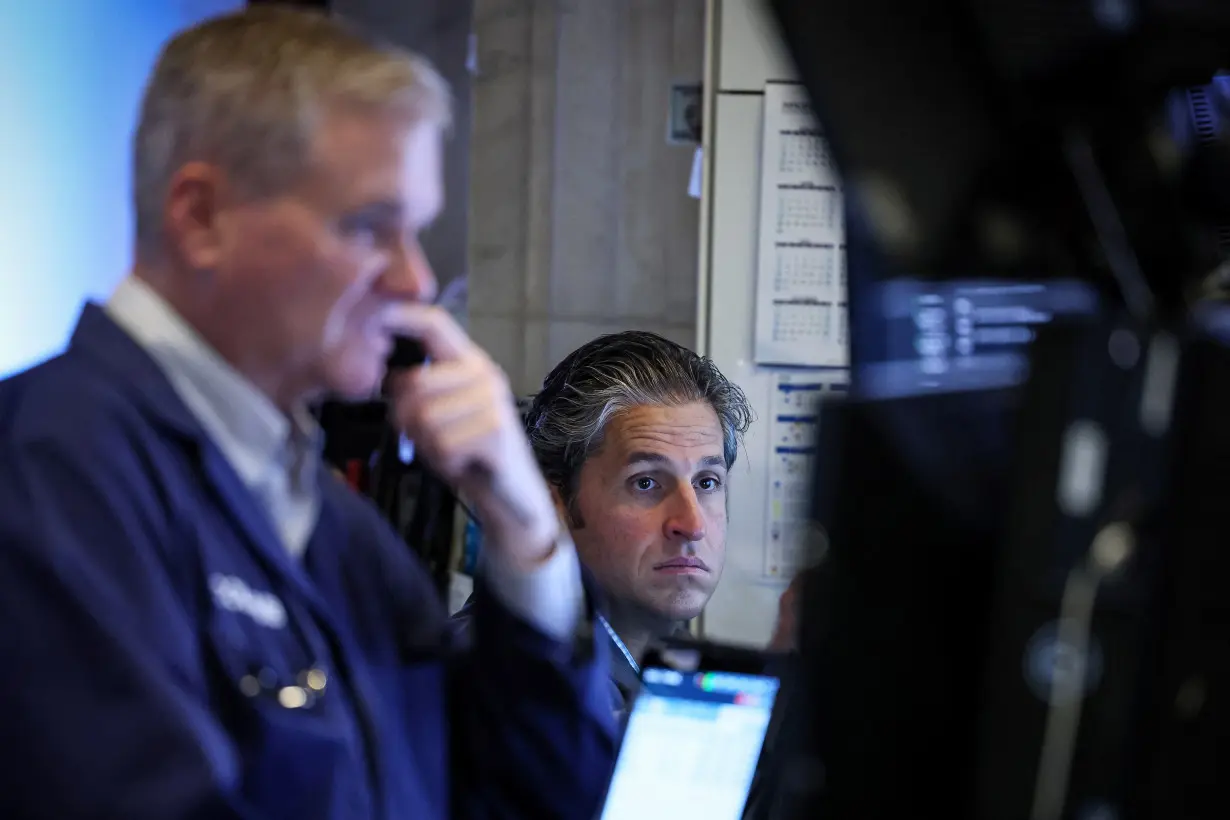
The Labor Department's report on Thursday showed the annual increase in consumer prices last month, excluding the volatile food and energy components, was the smallest in two years, but the surprise surge in rental costs caught investors' attention.
An auction of U.S. 30-year bonds showing poor demand also sent Treasury yields higher. In afternoon trading, U.S. benchmark 10-year yields were last up 10.2 bps at 4.699%, after hitting two-week lows of 4.53% earlier in the session.
The rise in yields weighed on Wall Street stocks.
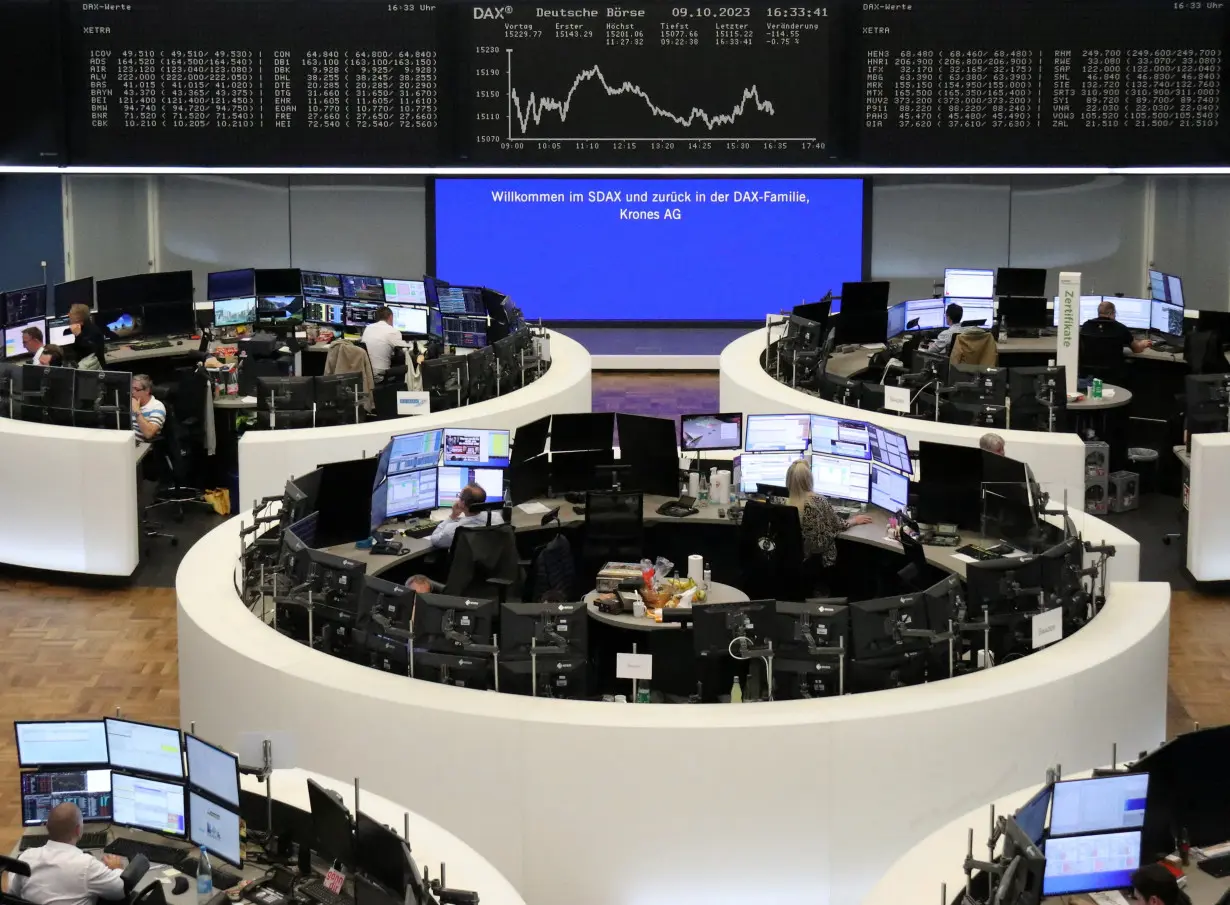
Yields are "going to be the primary driver on where markets go," for now, said Alan Lancz, president of Alan B. Lancz & Associates Inc, an investment advisory firm based in Toledo, Ohio.
But, "it's going to be a challenging market environment," he said. "I know a lot of people think the fourth quarter is going to be a rally ... but it's gonna be difficult with all the uncertainty going on now as things unfold" in the Middle East and with earnings.
Third-quarter earnings season gets under way for the S&P 500 on Friday with results from some of the big U.S. banks and other companies.
The Dow Jones Industrial Average fell 173.73 points, or 0.51%, to 33,631.14; the S&P 500 lost 27.34 points, or 0.62%, to 4,349.61; and the Nasdaq Composite dropped 85.46 points, or 0.63%, to 13,574.22.
The pan-European STOXX 600 index rose 0.10% and MSCI's gauge of stocks across the globe shed 0.49%.
Recent gains in stocks have followed comments from Federal Reserve officials suggesting that U.S. interest rates - which tend to drive global borrowing costs - may have finally peaked.
"Overall, there is probably not enough in the (CPI) report alone to suggest to the FOMC that it needs to be tightening policy again in November, but it will see it as justifying its message that policy needs to remain 'tighter for longer,' with the prospect of another rate rise still being kept on the table," said Stuart Cole, chief macro economist, at Equiti Capital.
U.S. oil prices ended lower after a large build in U.S. crude stockpiles. Brent futures rose 18 cents to settle at $86.00 per barrel. U.S. West Texas Intermediate crude fell 58 cents to $82.91. Prices had risen more than $1 a barrel earlier in the session.
In the foreign exchange market, the dollar index, a measure of the U.S. currency against six others, jumped 0.85% to 106.550 in its biggest single-day gain since March 15. The dollar rose more than 1% against sterling, and the Australian and New Zealand dollars.
Spot gold dropped 0.3% to $1,868.52 an ounce.
(Reporting by Caroline Valetkevitch; Additional reporting by Gertrude Chavez-Dreyfuss in New York, Marc Jones in London and Stella Qiu in Sydney; Editing by Angus MacSwan, Will Dunham, Emelia Sithole-Matarise and Jonathan Oatis)

 Italy, Albania, UAE sign deal for energy subsea interconnection
Italy, Albania, UAE sign deal for energy subsea interconnection
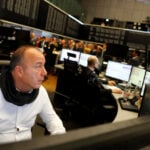 European shares advance as bond yields ease; soft inflation powers UK stocks
European shares advance as bond yields ease; soft inflation powers UK stocks
 Bank Indonesia delivers surprise rate cut to support growth
Bank Indonesia delivers surprise rate cut to support growth
 Novak Djokovic breaks a tie with Roger Federer for the most Grand Slam matches in tennis history
Novak Djokovic breaks a tie with Roger Federer for the most Grand Slam matches in tennis history
 China's RedNote: what you need to know about the app TikTok users are flocking to
China's RedNote: what you need to know about the app TikTok users are flocking to
 British author Neil Gaiman denies ever engaging in non-consensual sex as more accusers come forward
British author Neil Gaiman denies ever engaging in non-consensual sex as more accusers come forward
